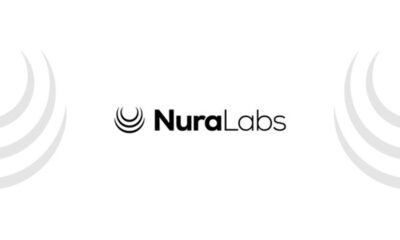Alternative Energy
5 Ways Nutrition Plays a Role in Your Mental Well-being

Nutrition is an essential aspect of our overall health and well-being, affecting not only our physical state but also our mental state. Proper nutrition provides the necessary nutrients for our body to function effectively, which includes supporting our brain’s functioning and promoting better mental health. In this article, we will discuss five ways nutrition plays a role in your mental well-being.
Mood Regulation
The food we eat has a direct impact on our brain chemistry, which in turn affects our mood and emotions. Nutrients such as omega-3 fatty acids, B vitamins, and magnesium are essential for the production of neurotransmitters, chemical messengers responsible for regulating our mood. A deficiency in these nutrients can lead to imbalances in neurotransmitters, which may contribute to symptoms of depression and anxiety. By consuming a balanced diet that includes foods rich in these nutrients, we can support healthy neurotransmitter production and improve our mood regulation.
Stress Management
Stress is a common part of daily life, but chronic stress can have detrimental effects on our mental health. When faced with stressors, our body releases cortisol, a hormone that helps us cope with stress. However, a prolonged release of cortisol can lead to increased inflammation and reduced levels of serotonin, a neurotransmitter that promotes feelings of calmness and well-being. Eating foods high in antioxidants and omega-3 fatty acids can help reduce inflammation and support the production of serotonin, helping us better manage stress.
Cognitive Function
Our brain requires a steady supply of glucose, the primary source of energy for our cells, to function optimally. Consuming foods high in refined sugars and unhealthy fats can lead to spikes and crashes in blood sugar levels, which can negatively impact our cognitive function. On the other hand, a diet rich in complex carbohydrates, healthy fats, and protein provides a slow and steady release of glucose, supporting sustained energy levels and better cognitive function. Additionally, certain nutrients like choline and vitamin E have been linked to improved memory and cognition.
Gut-Brain Connection
The gut-brain connection refers to the relationship between our digestive system and our brain. Our gut is home to trillions of bacteria that play a vital role in our physical and mental health. When our gut bacteria are imbalanced, it can lead to inflammation and affect our brain’s functioning, contributing to mood disorders like anxiety and depression. Eating a diet rich in probiotics (good bacteria) and prebiotics (food for good bacteria), such as fermented foods and fiber-rich plant-based foods, can help promote a healthy balance of gut bacteria and support our mental well-being.
Mental Illness Prevention
Research has shown that a healthy diet can play a significant role in preventing certain mental illnesses. For example, a Mediterranean-style diet, which includes plenty of fruits, vegetables, whole grains, lean proteins, and healthy fats like olive oil and nuts, has been linked to a lower risk of depression and anxiety. On the other hand, a diet high in processed and sugary foods has been associated with an increased risk of mental health disorders. By prioritizing nutrition and making healthy food choices, we can support our overall mental health and potentially prevent certain mental illnesses.
As you can see, nutrition is a crucial factor in maintaining good mental well-being. By consuming a balanced diet that includes a variety of nutrient-dense foods, we can support our brain’s functioning and promote better mental health. Additionally, it is essential to listen to our body’s signals and make healthy food choices that nourish not only our physical but also our mental state. Remember, what we eat matters for both our body and mind.
-

 Foreign Policy5 days ago
Foreign Policy5 days agoInside Schedule F: Will Trump’s Federal Workforce Shake-Up Undermine Democracy?
-

 Press Release4 days ago
Press Release4 days agoIn2space Launches Campaign to Make Space Travel Accessible for All
-

 Press Release5 hours ago
Press Release5 hours agoNura Labs Files Revolutionary Patent: AI-Powered Wallet Solves the $180 Billion Crypto Staking Complexity Crisis















